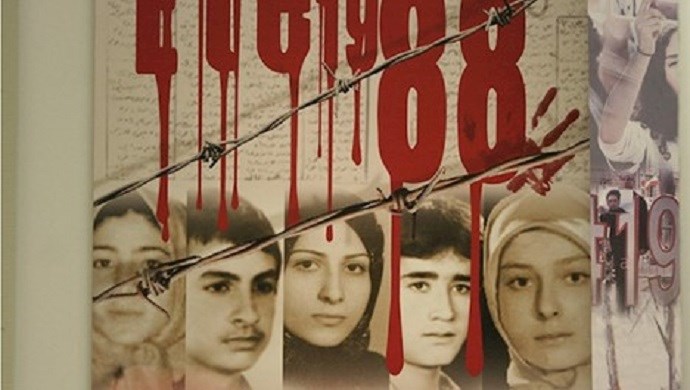Reporting by PMOI/MEK
Iran, December 9, 2020—In a detailed letter, a group of United Nations human rights experts have warned the Iranian regime about its continued cover-up of massacre of thousands of political prisoners in 1988. The letter, sent on September 3, raises concerns based on documented accounts provided by the families of the victims and calls on the regime to clarify the fate of the political prisoners.
“We have received concerning allegations of the continued refusal to disclose the circumstances of death and remains of thousands of political dissidents who were forcibly disappeared and then extrajudicially executed between July and early September 1988 in 32 cities, and the authorities’ refusal to provide families with accurate and complete death certificates,” the letter reads in part.
The letter contains detailed accounts of Iranian authorities harassing and lying to the families of the victims. It also raises concerns about the lack of prosecution of the perpetrators of the massacre. “There is systemic impunity enjoyed by those who ordered and carried out the extrajudicial executions and enforced disappearances. To date, no official in Iran has been brought to justice and many of the officials involved continue to hold positions of power including key judicial, prosecutorial and governmental bodies responsible for ensuring the victims receive justice,” the UN experts warn.
Among these officials is Ebrahim Raisi, the current chief of judiciary, who was a member of the “death commissions” during the 1988 massacre and personally issued the death sentence of thousands of prisoners.
The signatories also reminded regime officials that the passage of time will not reduce the gravity of the issue.
“We underline that an enforced disappearance continues until the fate and whereabouts of the individual concerned are established irrespective of the time passed, and the family members have a right to the truth which means the right to know about the progress and results of an investigation, the fate and whereabouts of the disappeared persons, and the circumstances of the disappearances, and the identity of the perpetrator(s),” the letter reads.
Justice for the Victims of 1988 Massacre (JVMI), a non-profit organization that is investigating the 1988 massacre, has documented the names of many of the victims and the perpetrators.
“We are concerned that the situation may amount to crimes against humanity,” the signatories of the letter write, adding that if the regime does not uphold its obligations under international human rights laws, the rights experts will “call on the international community to take action to investigate the cases including through the establishment of an international investigation.”
The regime was given a 60-day window to provide its response to the letter and take action and clarify. Absent a proper response, the UN experts made the letter public on the eve of the International Human Rights Day.
In a statement, Amnesty International described the letter as “a momentous breakthrough.”
“It marks a turning point in the long-standing struggles of victims’ families and survivors, supported by Iranian human rights organizations and Amnesty International, to end these crimes and obtain truth, justice and reparation,” said Diana Eltahawy, Amnesty International’s Deputy Director for the Middle East and North Africa.
“Top UN human rights experts have now sent an unequivocal, and long overdue, message: the ongoing crimes of mass enforced disappearances resulting from the secret extrajudicial executions of 1988 can no longer go unaddressed and unpunished”, Eltahawy added.
Mass execution of Iranian political prisoners
In the summer of 1988, Iranian regime supreme leader Ruhollah Khomeini ordered the purging of all prisons from opponents of the regime, especially members of the People’s Mojahedin Organization of Iran (PMOI/MEK). On Khomeini’s orders, regime officials carried out mass executions of political prisoners across Iran. Prisoners, many of whom had finished their sentence or had been arrested for simple things such as distributing opposition newspapers, were tried in minutes-long trials and executed. According to information obtained by the MEK’s network inside Iran and the few prisoners who survived the carnage, more than 30,000 prisoners were executed in the span of a few months, most of them members and supporters of the MEK.
Regime officials resorted to mass secrecy following the executions denying the families of the victims knowledge about the fate of their loved ones for a long time. Those families who did find out were intimidated by regime authorities into remaining silent about the execution of their family members to keep the executions secret.
The victims of the 1988 massacre were buried in hidden mass graves, some of which were later discovered by MEK activists. The regime has turned many of those mass graves into construction sites to further hide evidence of the crime.
The Iranian Resistance informed the international community about the executions immediately after they begun and called for immediate action. The Iranian Resistance has repeatedly called for an international investigation into the executions and trials for the perpetrators of the crimes.
Last year, the Iranian Resistance published a new book with the names of more than 5,000 victims of the 1988 massacre. The book was presented at a conference at the European Parliament by Mrs. Maryam Rajavi, the president-elect of the National Council of Resistance of Iran (NCRI).
Crime against Humanity is a book containing the names of over 5,000 victims of the #1988massacre in #Iran, also addresses of the tombs & mass graves in 36 cities, names of members of 35 Death Commissions, & lists 110 cities where the massacre was carried out. pic.twitter.com/P8iJqAzXJo
— Maryam Rajavi (@Maryam_Rajavi) October 27, 2019
The Iranian Resistance has time and again stressed that the Iranian regime cannot investigate its own crimes and it is the duty of the international community to launch an independent probe for the 1988 massacre and refer the regime’s human rights dossier to the UN Security Council. The letter of the UN experts and the regime’s lack of response once again underlines the need for a firm and unified approach by the international community toward the 1988 massacre and the regime’s ongoing human rights abuses.





